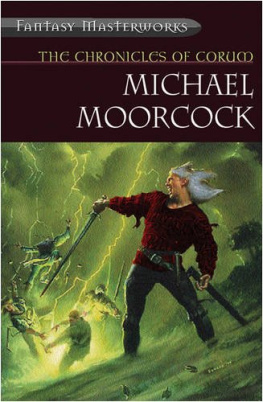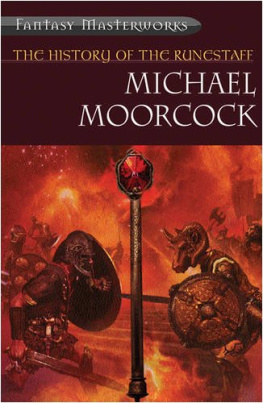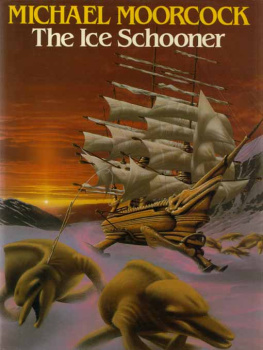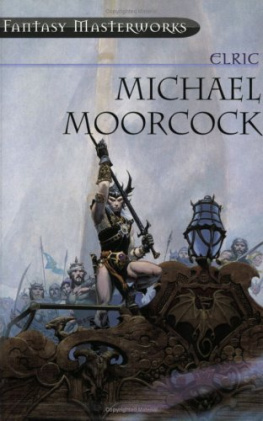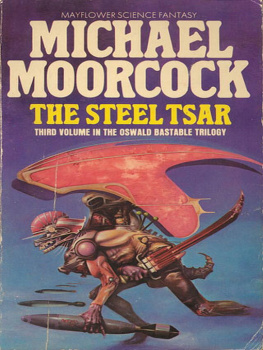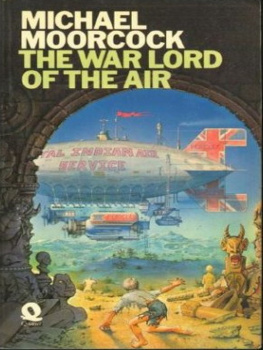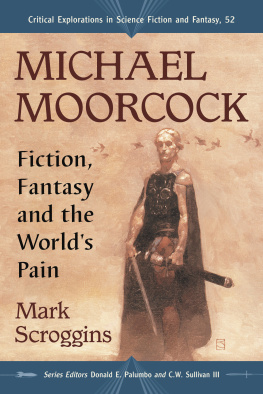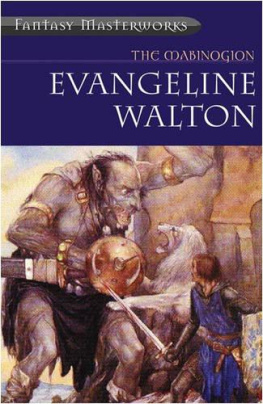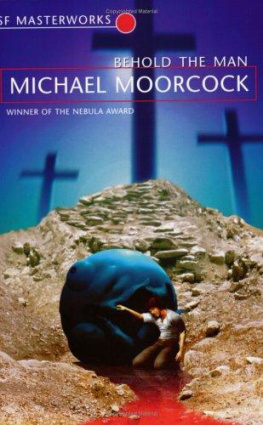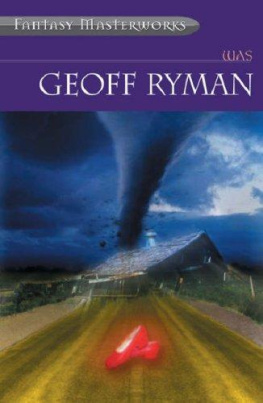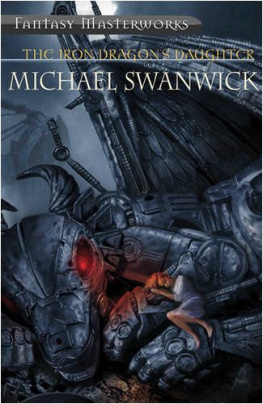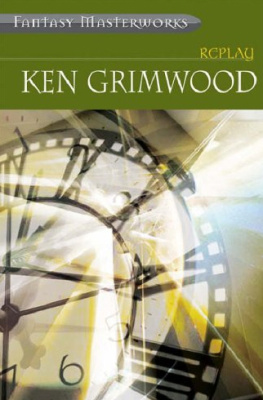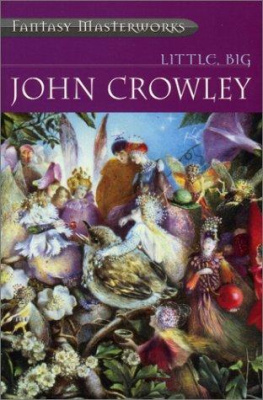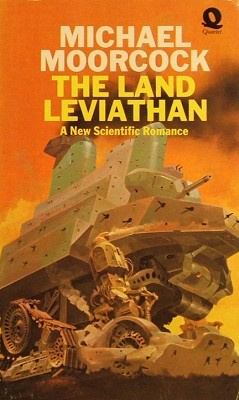Michael Moorcock - Corum (Fantasy Masterworks 30)
Here you can read online Michael Moorcock - Corum (Fantasy Masterworks 30) full text of the book (entire story) in english for free. Download pdf and epub, get meaning, cover and reviews about this ebook. year: 2002, publisher: Orion Paperbacks, genre: Adventure. Description of the work, (preface) as well as reviews are available. Best literature library LitArk.com created for fans of good reading and offers a wide selection of genres:
Romance novel
Science fiction
Adventure
Detective
Science
History
Home and family
Prose
Art
Politics
Computer
Non-fiction
Religion
Business
Children
Humor
Choose a favorite category and find really read worthwhile books. Enjoy immersion in the world of imagination, feel the emotions of the characters or learn something new for yourself, make an fascinating discovery.
- Book:Corum (Fantasy Masterworks 30)
- Author:
- Publisher:Orion Paperbacks
- Genre:
- Year:2002
- Rating:4 / 5
- Favourites:Add to favourites
- Your mark:
- 80
- 1
- 2
- 3
- 4
- 5
Corum (Fantasy Masterworks 30): summary, description and annotation
We offer to read an annotation, description, summary or preface (depends on what the author of the book "Corum (Fantasy Masterworks 30)" wrote himself). If you haven't found the necessary information about the book — write in the comments, we will try to find it.
Corum (Fantasy Masterworks 30) — read online for free the complete book (whole text) full work
Below is the text of the book, divided by pages. System saving the place of the last page read, allows you to conveniently read the book "Corum (Fantasy Masterworks 30)" online for free, without having to search again every time where you left off. Put a bookmark, and you can go to the page where you finished reading at any time.
Font size:
Interval:
Bookmark:
The Chronicles of Corum
Michael Moorcock
Fantasy Masterworks Volume 30
eGod
Being a History in Three Volumes Concerning the Quests and Adventures of Corum Jhaelen Irsei of the Vadhagh Folk, Who Is Also Called the Prince in the Scarlet Robe
Content
The Knight of Swords
The Queen of Swords
The King of Swords
In those days there were oceans of light and cities in the skies and wild flying beasts of bronze. There were herds of crimson cattle that roared and were taller than castles. There were shrill, viridian things that haunted bleak rivers. It was a time of gods, manifesting themselves upon our world in all her aspects; a time of giants who walked on water; of mindless sprites and misshapen creatures who could be summoned by an ill-considered thought but driven away only on pain of some fearful sacrifice; of magics, phantasms, unstable nature, impossible events, insane paradoxes, dreams come true, dreams gone awry, of nightmares assuming reality.
It was a rich time and a dark time. The time of the Sword Rulers. The time when the Vadhagh and the Nhadragh, age-old enemies, were dying. The time when Man, the slave of fear, was emerging, unaware that much of the terror he experienced was the result of nothing else but the fact that he, himself, had come into existence. It was one of many ironies connected with Man, who, in those days, called his race "Mabden."
The Mabden lived brief lives and bred prodigiously. Within a few centuries they rose to dominate the westerly continent on which they had evolved. Superstition stopped them from sending many of their ships toward Vadhagh and Nhadragh lands for another century or two, but gradually they gained courage when no resistance was offered. They began to feel jealous of the older races; they began to feel malicious.
The Vadhagh and the Nhadragh were not aware of this. They had dwelt a million or more years upon the planet which now, at last, seemed at rest. They knew of the Mabden but considered them not greatly different from other beasts. Though continuing to indulge their traditional hatreds of one another, the Vadhagh and the Nhadragh spent their long hours in considering abstractions, in the creation of works of art and the like. Rational, sophisticated, at one with themselves, these older races were unable to believe in the changes that had come. Thus, as it almost always is, they ignored the signs.
There was no exchange of knowledge between the two ancient enemies, even though they had fought their last battle many centuries before.
The Vadhagh lived in family groups occupying isolated castles scattered across a continent called by them Bro-an-Vadhagh. There was scarcely any communication between these families, for the Vadhagh had long since lost the impulse to travel. The Nhadragh lived in their cities built on the islands in the seas to the northwest of Bro-an-Vadhagh. They, also, had little contact, even with their closest kin. Both races reckoned themselves invulnerable. Both were wrong.
Upstart Man was beginning to breed and spread like a pestilence across the world. This pestilence struck down the old races wherever it touched them. And it was not only death that Man brought, but terror, too. Willfully, he made of the older world nothing but ruins and bones. Unwittingly, he brought psychic and supernatural disruption of a magnitude which even the Great Old Gods failed to comprehend.
And the Great Old Gods began to know Fear. And Man, slave of fear, arrogant in his ignorance, continued his stumbling progress. He was blind to the huge disruptions aroused by his apparently petty ambitions. As well, Man was deficient in sensitivity, had no awareness of the multitude of dimensions that filled the universe, each plane intersecting with several others. Not so the Vadhagh nor the Nhadragh, who had known what it was to move at will between the dimensions they termed the Five Planes. They had glimpsed and understood the nature of the many planes, other than the Five, through which the Earth moved.
Therefore it seemed a dreadful injustice that these wise races should perish at the hands of creatures who were still little more than animals. It was as if vultures feasted on and squabbled over the paralyzed body of the youthful poet who could only stare at them with puzzled eyes as they slowly robbed him of an exquisite existence they would never appreciate, never know they were taking.
"If they valued what they stole, if they knew what they were destroying," says the old Vadhagh in the story, The Only Autumn Flower, "then I would be consoled."
It was unjust.
By creating Man, the universe had betrayed the old races.
But it was a perpetual and familiar injustice. The sentient may perceive and love the universe, but the universe cannot perceive and love the sentient. The universe sees no distinction between the multitude of creatures and elements which comprise it. All are equal. None is favored. The universe, equipped with nothing but the materials and the power of creation, continues to create: something of this, something of that. It cannot control what it creates and it cannot, it seems, be controled by its creations (though a few might deceive themselves otherwise). Those who curse the workings of the universe curse that which is deaf. Those who strike out at those workings fight that which is inviolate. Those who shake their fists, shake their fists at blind stars.
But this does not mean that there are some who will not try to do battle with and destroy the invulnerable.
There will always be such beings, sometimes beings of great wisdom, who cannot bear to believe in an insouciant universe.
Prince Corum Jhaelen Irsei was one of these. Perhaps the last of the Vadhagh race, he was sometimes known as The Prince in the Scarlet Robe.
This chronicle concerns him.
The Book of Corum
In which Prince Corum learns a lesson and loses a limb
At Castle Erorn
At Castle Erorn dwelt the family of the Vadbagh prince, Khlonskey. This family had occupied the castle for many centuries. It loved, exceedingly, the moody sea that washed Erorn's northern walls and the pleasant forest that crept close to her southern flank.
Castle Erora was so ancient that it seemed to have fused entirely with the rock of the huge eminence that overlooked the sea. Outside, it was a splendor of time-worn turrets and salt-smoothed stones. Within, it had moving walls which changed shape in tune with the elements and changed color when the wind changed course. And there were rooms full of arrangements of crystals and fountains, playing exquisitely complicated fugues composed by members of the family, some living, some dead. And there were galleries filled with paintings brushed on velvet, marble, and glass by Prince Khlonskey's artist ancestors. And there were libraries filled with manuscripts written by members of both the Vadhagh and the Nhadragh races. And elsewhere in Castle Erora were rooms of statues, and there were aviaries and menageries, observatories, laboratories, nurseries, gardens, chambers of meditation, surgeries, gymnasia, collections of martial paraphernalia, kitchens, planetaria, museums, conjuratoria, as well as rooms set aside for less specific purposes, or rooms forming the apartment of those who lived in the castle.
Twelve people lived in the castle now, though once five hundred had occupied it. The twelve were Prince Khlonskey, himself, a very ancient being; his wife Colatalarna, who was, in appearance, much younger than her husband; Hastru and JPholhinra, his twin daughters; Prince Rhanan, his brother; Sertreda, his niece; Corum, his son. The remaining five were retainers, distant cousins of the prince. All had characteristic Vadhagh features: narrow, long skulls; ears that were almost without lobes and tapered flat alongside the head; fine hair that a breeze would make rise like flimsy clouds about their faces; large almond eyes that had yellow centers and purple surrounds; wide, full-lipped mouths; and skin that was a strange, gold-flecked rose-pink. Their bodies were slim and tall and well proportioned and they moved with a leisurely grace that made the human gait seem like the shambling of a crippled ape.
Next pageFont size:
Interval:
Bookmark:
Similar books «Corum (Fantasy Masterworks 30)»
Look at similar books to Corum (Fantasy Masterworks 30). We have selected literature similar in name and meaning in the hope of providing readers with more options to find new, interesting, not yet read works.
Discussion, reviews of the book Corum (Fantasy Masterworks 30) and just readers' own opinions. Leave your comments, write what you think about the work, its meaning or the main characters. Specify what exactly you liked and what you didn't like, and why you think so.

